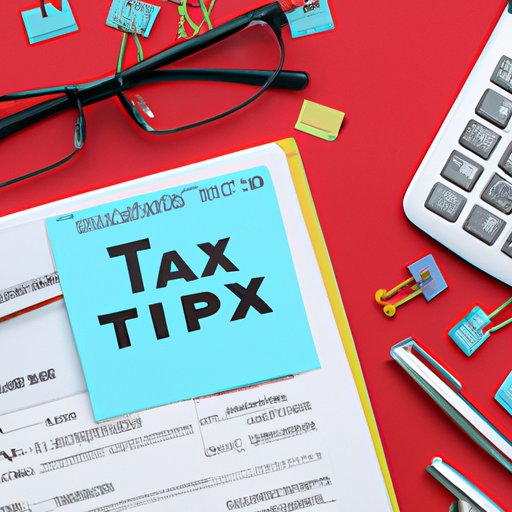
I. Introduction
Every year, U.S. taxpayers have to file their tax returns by a certain deadline. The tax filing deadline is the date by which you must submit your federal tax return to the Internal Revenue Service (IRS). Missing this deadline can lead to various consequences, including penalties, interest charges, and even legal action. In this article, we will explore how long you have to file taxes, the penalties for late filing, and some tips to help you file before the deadline.
II. Why Waiting to File Your Taxes Can Cost You: The Importance of Filing within the Deadline
Missing the tax filing deadline can result in significant financial consequences for taxpayers. The IRS can impose penalties and interest on any unpaid taxes, which can add up quickly. Some common penalties associated with late tax filing include failure-to-file, failure-to-pay, and penalties on estimated taxes. One way to mitigate these charges is to pay as much as you can as soon as possible. If you’re struggling to pay, there are several options available to you, like setting up a payment plan or making an offer in compromise.
III. Filing Taxes in a Pandemic: Changes to Deadlines and What You Need to Know
The COVID-19 pandemic has caused significant changes to tax filing deadlines. In 2021, the IRS extended the deadline for taxpayers to file and pay their federal income taxes from April 15 to May 17, 2021. It’s essential to keep up with the changing tax laws and regulations to avoid missing these deadlines. Taxpayers who need more time to file may request an automatic extension until October 15, 2021. The IRS also offers additional options for electronic filing, including the Free File program, which allows taxpayers to file their federal tax returns online for free.

IV. Maximizing Your Tax Refund: The Benefits of Filing Early
One of the most significant benefits of filing early is that you can receive your refund sooner. Filing early allows you to get an early start on your tax planning for the coming year. You can also take advantage of some tax tips that can help you maximize your refund, such as claiming all your deductions and credits, making sure all your information is accurate, and keeping organized records. Additionally, filing early can help prevent tax fraud and identity theft by making it harder for scammers to file a fraudulent return in your name.
V. The Complexity of Filing for an Extension: What Taxpayers Should Know
If you can’t file your tax return by the deadline, you can file for an automatic extension. However, taxpayers should be aware that filing an extension doesn’t mean they have more time to pay their taxes. To avoid penalties and interest on their unpaid taxes, taxpayers should pay as much as they can by the deadline. Some risks and drawbacks associated with filing an extension include affecting your credit score, delaying your refund, and more.
VI. How to Avoid Paying Penalties on Late Tax Filing
There are several strategies to help you avoid penalties associated with late tax filing. One of the most important things is to file your tax return as soon as possible, even if you can’t pay your taxes in full. You can also set up a payment plan with the IRS or make an offer in compromise to negotiate a lower tax amount. It’s essential to communicate with the IRS and respond to their notices promptly. In some cases, you may be able to file for penalty relief.
VII. The Consequences of Filing Late: A Guide to Understanding the Risks and Penalties
When you miss the tax filing deadline, you expose yourself to a range of negative consequences. The IRS may impose a failure-to-file penalty, which starts at 5% of the unpaid taxes and can go up to 25% of your total tax bill. If you don’t file your return for two years in a row, the penalty increases to 5% per month, up to a maximum of 25%. Additionally, you may lose your right to certain credits and deductions if you don’t file your tax return on time. In some cases, the IRS may also pursue legal action, including criminal prosecution, against taxpayers who repeatedly fail to file their tax returns.
VIII. Conclusion
Now that you know how long you have to file taxes and the consequences of missing the deadline, it’s essential to take action and file your tax return as soon as possible. Filing early can help you avoid penalties, maximize your tax refund, and prevent tax fraud. If you’re unable to meet the tax filing deadline, you can file for an automatic extension, set up a payment plan, or explore other options for penalty relief. Remember, timely tax filing is a responsibility that comes with being a taxpayer, and it’s essential to take it seriously.




